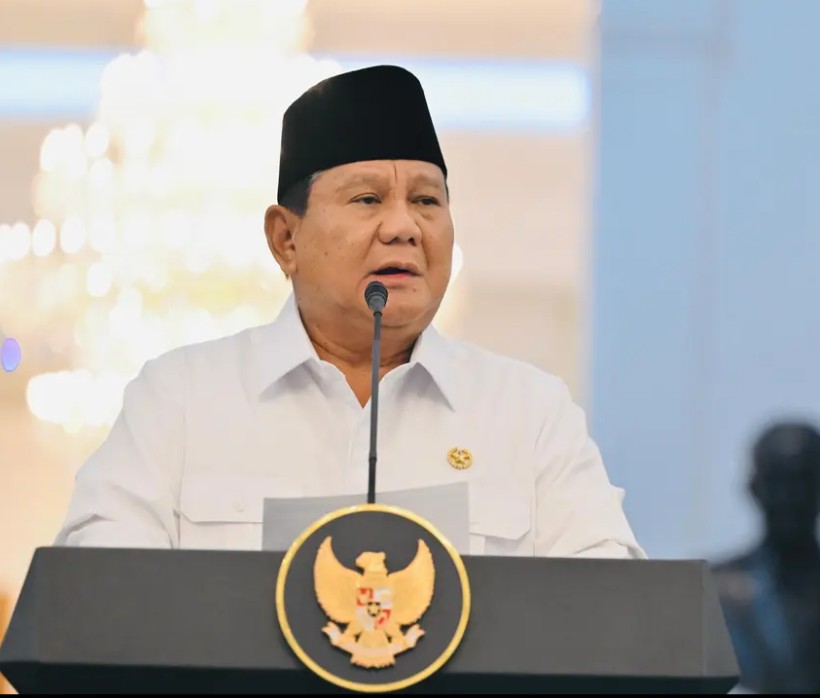Prabowo cracks down on protests. Indonesian bishops: the people must be heard
Faced with a wave of demonstrations marking the first real crisis of his government, the president has cancelled some of the controversial measures approved by parliament, but at the same time is crying conspiracy. The Bishops' Conference: ‘Any policy or plan that burdens society and undermines justice should be reconsidered or cancelled. And the security forces should act as protectors of all.’
Jakarta (AsiaNews) - President Prabowo Subianto has ordered the Indonesian armed forces and police to act firmly against anti-government protests that have also led to violence spreading across Java, Lombok and South Sulawesi. The unrest has already claimed several victims: one in Jakarta, another in Yogyakarta and three in Makassar, where protesters set fire to a local council building.
The demonstrations have also spread to Bandung, Semarang, Surabaya and Medan. In Lombok, another council building was set on fire, while in Surabaya protesters attacked the police headquarters.
Initially triggered by the revelation that MPs receive housing allowances almost ten times higher than the minimum wage in Jakarta, the protests have turned into a broader expression of public anger against inequality and government privileges. Prabowo has recognised the right of citizens to peaceful protest and has revoked some of the most controversial measures, including the disputed economic benefits.
But he also promised a crackdown on violence. ‘The right to peaceful demonstration must be respected and protected. But there are clear signs of illegal acts - even acts that amount to treason and terrorism,’ he said last night in Jakarta. He also suggested that the unrest could resemble an attempt at a ‘coup’ against the government.
Defence Minister Sjafrie Sjamsoeddin described this statement as a general description and not a direct accusation.
Jakarta began to return to normal today, although many schools, universities and offices continued to operate remotely. Demonstrations planned for today were postponed to avoid repressive intervention, but the atmosphere remains tense.
Human rights groups have condemned Prabowo's statements. ‘These statements show a lack of sensitivity to the legitimate demands of the people,’ said Usman Hamid, executive director of Amnesty International Indonesia. ‘The government should respond with comprehensive political reforms.’
In response to the escalating unrest, TikTok has temporarily suspended its live streaming service in Indonesia, citing security concerns. Analysts say these protests represent the biggest challenge for Prabowo, less than a year after he took office.
The president has also cancelled his planned trip to China, where he was due to attend the Shanghai Cooperation Organisation summit in Tianjing at the invitation of Xi Jinping and the 3 September celebrations marking the 8th anniversary of the “victory” over Japan.
‘On the ground, frustration over economic difficulties and perceived government privileges is palpable,’ said Dedi Dinarto, senior associate at Global Counsel. ‘If these deeper concerns are not addressed, the unrest is unlikely to subside.’
In this context of high tension, Cardinal Ignatius Suharyo, Archbishop of Jakarta, issued a message inviting Indonesians to maintain social harmony and solidarity: "In these difficult times, I invite the faithful to remain clear-headed and steadfast, to strengthen social solidarity for the common good, and to take responsibility as citizens, as enshrined in the 1945 Constitution. Let us take care of Jakarta, let us take care of Indonesia. May Almighty God protect and bless our nation.‘
For its part, the Indonesian Bishops' Conference issued an official statement calling on state institutions to ’listen to the aspirations of the people," especially the vulnerable, the poor and the victims of injustice.
‘Any policy or plan that burdens society and undermines justice should be reconsidered or cancelled. They should demonstrate a genuine commitment to realising the ideals of independence through transparent, accountable and credible governance. They should ensure that the security forces act as protectors of all citizens, favouring humane approaches in handling mass protests.’
The bishops conclude by saying that they will remain vigilant towards the executive, legislative and judicial powers to ensure that policies are just and serve the common good.
07/02/2019 17:28







.png)










